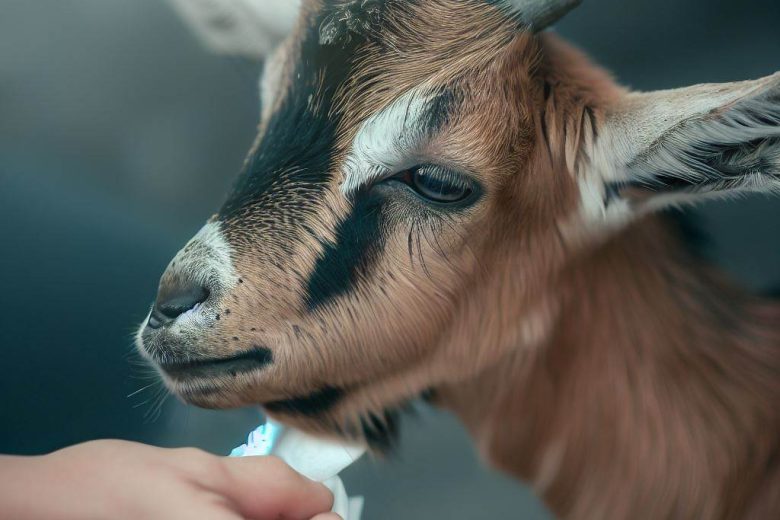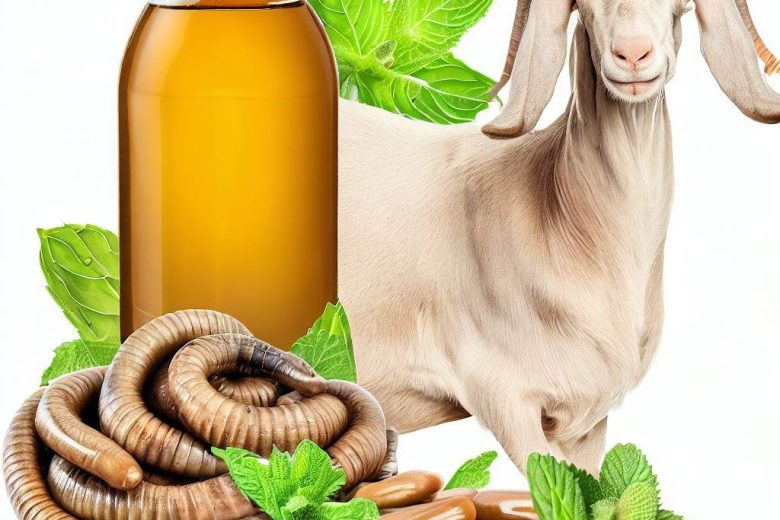Goat farming can be a rewarding endeavor, but ensuring the health and well-being of your herd is paramount. Recognizing early signs of health issues is crucial for preventing fatalities. Here are 15 symptoms that might indicate a goat’s health is at risk:
15 Goat Dying Symptoms: Identifying and Addressing Health Issues
1. Lethargy:
Causes: Lethargy in goats can be attributed to various factors, such as infections (like pneumonia or enterotoxemia), mineral deficiencies, or metabolic issues.
Diagnosis & Treatment: Isolate the goat, check its temperature, observe breathing patterns, and look for other symptoms. A vet can perform blood tests and prescribe appropriate antibiotics or supplements.
Read Also: Weak Goat Treatment Comprehensive Guide For Beginners
2. Loss of Appetite:
Causes: Loss of appetite can stem from dental problems, sudden feed changes, infections (e.g., listeriosis), or stress.
Diagnosis & Treatment: Inspect the goat’s mouth, ensure a consistent diet, and watch for other signs like fever or disorientation. Vet assistance might involve antibiotics or supportive care.
3. Weight Loss:
Causes: Weight loss can be due to internal parasites, poor nutrition, chronic infections, or underlying diseases like Johne’s disease.
Diagnosis & Treatment: Perform fecal exams for parasites, review feeding practices, and consider blood tests. Deworming, adjusting diet, and isolating sick goats are common strategies.
Read Also: Weak Goat Treatment Comprehensive Guide For Beginners
4. Coughing or Sneezing:
Causes: Respiratory issues arise from viral or bacterial infections (e.g., Mycoplasma pneumonia), dusty or damp living conditions, or exposure to extreme weather.
Diagnosis & Treatment: Isolate affected goats, observe nasal discharge, cough frequency, and breathing rate. Consult a vet for antibiotics, supportive care, and improved ventilation.
5. Nasal Discharge:
Causes: Nasal discharge can signal respiratory infections (e.g., contagious caprine pleuropneumonia), allergies, or irritants.
Diagnosis & Treatment: Examine discharge color, consistency, and accompanying symptoms. A vet can prescribe antibiotics, anti-inflammatories, and offer guidance on improving living conditions.
Read Also: 10 Herbal Remedies for Goat Coughing and Sneezing
6. Watery Eyes:
Causes: Excessive tearing might result from dust, infections like pink eye (conjunctivitis), or foreign objects.
Diagnosis & Treatment: Inspect eyes for signs of irritation or cloudiness. Rinse eyes with saline solution, apply prescribed ointments, and ensure clean bedding.
7. Fever:
Causes: Fever can be due to infections (e.g., goat pox), inflammation, or metabolic issues.
Diagnosis & Treatment: Use a rectal thermometer to check body temperature. A vet’s evaluation is vital for determining the underlying cause and prescribing appropriate treatment.
Read Also: [Beginner’s Guide] How to Identify Dying Goat In Your Farm
8. Diarrhea:
Causes: Diarrhea stems from dietary changes, bacterial infections (e.g., coccidiosis), or viral diseases like rotavirus.
Diagnosis & Treatment: Assess stool consistency, color, and frequency. Conduct fecal tests, isolate affected goats, administer electrolytes, and follow vet recommendations.
9. Constipation:
Causes: Constipation might arise from dehydration, inadequate fiber intake, or underlying health issues.
Diagnosis & Treatment: Check rectal temperature and assess feces for consistency. Offer plenty of fresh water, high-fiber feed, and consult a vet if symptoms persist.
Read Also: 10 Home Remedies for Sick Goats [Beginner’s Guide]
10. Droopy Ears:
Causes: Drooping ears can result from fever, stress, or pain associated with various illnesses.
Diagnosis & Treatment: Evaluate body temperature, check for signs of distress or injury. Address underlying issues, provide pain relief if necessary, and ensure proper care.
11. Separation from the Herd:
Causes: Isolation might indicate bullying, illness, or stress.
Diagnosis & Treatment: Observe social interactions, body language, and assess general health. Address herd dynamics, provide proper shelter, and monitor the isolated goat closely.
12. Change in Behavior:
Causes: Drastic behavioral changes might signal pain, discomfort, or neurological issues.
Diagnosis & Treatment: Note any unusual behavior patterns, assess for injuries, and consult a vet for thorough evaluation and appropriate treatment.
Read Also: 10 Herbs for Diarrhea Treatment in Goats [Beginner’s Guide]
13. Hoof Problems:
Causes: Hoof issues can arise from infections (e.g., foot rot), improper trimming, or nutritional imbalances.
Diagnosis & Treatment: Examine hooves for swelling, odor, or discharge. Isolate affected goats, trim hooves properly, and provide antibiotics or other treatments as recommended by a vet.
14. Rough Coat:
Causes: A dull, unkempt coat might be due to poor nutrition, external parasites (lice, mites), or underlying health issues.
Diagnosis & Treatment: Inspect the coat for signs of parasites or skin conditions. Enhance nutrition, treat for parasites, and consider consulting a vet for a health assessment.
15. Labored Breathing:
Causes: Labored breathing can be linked to lung infections (e.g., pneumonia), heart issues, or respiratory distress.
Diagnosis & Treatment: Observe breathing patterns, respiratory rate, and listen for wheezing. Immediate veterinary attention is crucial for diagnosing the underlying cause and instituting appropriate treatment.
As a seasoned farmer, I encourage continuous learning and close collaboration with veterinarians. Early intervention and thorough understanding of these symptoms can significantly improve goat health and ensure a thriving herd.
Goat Dying Symptoms Treatment
Recognizing the symptoms of a dying goat is crucial for ensuring its well-being. If you observe depression, labored breathing, pasty stools, or shedding of hair/wool, it could indicate serious conditions like Johne’s disease. Seeking veterinary assistance is essential for proper treatment and care.
Baby Goat Dying Symptoms
Baby goats can be susceptible to various health issues. Dehydration and starvation are common symptoms of a sick or dying baby goat. If you notice a baby goat not nursing or displaying lethargy, it’s essential to address their condition promptly to prevent further deterioration.
Sick Goat Won’t Get Up
A sick goat that won’t get up might be experiencing weakness, pain, or discomfort. This could be due to various factors, including infections, injuries, or internal issues. Observing other symptoms, like reduced appetite or changes in behavior, can provide valuable insights into the underlying problem.
Goat Laying on Side and Won’t Get Up
If a goat is lying on its side and refusing to get up, it could be indicative of severe distress. This posture could suggest abdominal pain, bloating, or even organ failure. Seeking immediate veterinary attention is crucial to diagnose and treat the issue.
Home Remedies for Sick Goats
While professional veterinary care is always recommended, there are some home remedies that might help alleviate mild goat health issues. These include offering electrolyte solutions for dehydration, providing warm shelter, and ensuring proper nutrition. However, these remedies should not replace professional medical advice.
Goat Not Eating and Lying Down
A goat not eating and lying down is a clear sign of a potential health problem. Loss of appetite could be due to a variety of issues, such as gastrointestinal problems, infections, or dental issues. It’s important to consult a veterinarian to determine the underlying cause and receive appropriate treatment.
Why Is My Goat Just Standing Still?
A goat standing still for extended periods could indicate discomfort or illness. It might be suffering from pain, internal issues, or even respiratory problems. Observing other symptoms like labored breathing or changes in behavior can help you understand the root cause.
Baby Goat Arching Back
An arched back in a baby goat could be a sign of discomfort, pain, or abdominal issues. This could be related to digestive problems, infections, or even spinal issues. It’s advisable to consult a veterinarian to accurately diagnose the problem and provide appropriate care.
Conclusion
It’s essential to regularly monitor your goats for any of these symptoms and consult a veterinarian promptly if you notice any unusual behavior or physical changes. Early detection and appropriate medical care can greatly increase the chances of successful treatment and herd preservation.




